After the Army erased names on the Ranger Memorial believed to be associated with the Confederacy, retired Rangers told the Daily Caller News Foundation the move undermines the memorial’s intent to honor the contributions of Rangers throughout U.S. history.
Fort Benning’s Col. Colin Mahle proceeded with recommendations from the Congressionally-mandated Naming Commission to cover or remove certain names on the Ranger Memorial associated with the Confederacy, even though they served the United States honorably, retired Brig. Gen. Joseph Stringham, Chairman of the National Ranger Memorial Foundation, wrote in a letter on April 28.
Not only did the commission dishonor the Rangers commemorated, but hiding the names denies free expression of those who contributed to the memorial for the sake of political clout, retired Rangers told the DNCF.
“It’s disgraceful. I think it’s foolish because it covers up history,” Retired Ranger 1st Lt. Richard Fincher, who served in the 101st Airborne Division and has a target stone in the memorial, told the DCNF. “Recognizing the valor and leadership of a foe does not constitute the endorsement of their cause.”
Congress instructed DOD to identify and root out any symbols, buildings, equipment or other assets that might appear to commemorate the Confederacy in 2021, according to a statement.
In response, Secretary of Defense Lloyd Austin tapped civilian and defense officials to review every single DOD asset and make a list of recommendations for change, ordering the changes in October.
The final report called for the removal of the Col. John S. Mosby from display on the Ranger Memorial, as well as “the names of all Confederates from paver stones on the Ranger Memorial Walk leading to the Ranger Memorial (including but not limited to William Quantrill, George Bowman, and Jackson Bowman).”
But, two of the Rangers noted — Mosby and Morgan — do not deserve to have their names scrubbed, Stringham said in the letter notifying Rangers of the changes.
“Implementation of dramatic/radical edicts and shifts in policy at issue here are frequently accompanied by inaccuracies, (stupid) interpretations, injustices to survivors and a strong political slant offensive to substantial sectors of society,” Stringham wrote.
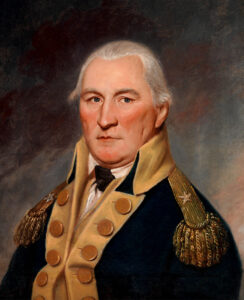
General Daniel Morgan
For example, Brig. Gen. Daniel Morgan was wrongly identified with the Confederacy as Brig. Gen. John Hunt Morgan, according to Stringham. Daniel Morgan served on the side of the colonies during the Revolutionary War and was a hero in the Battle of the CowPens.
And while Col. Mosby made his name as a Ranger on the Confederate side, he claimed to oppose slavery and went on to support Union Gen. Ulysses S. Grant’s presidential bid and serve as consul in China, according to the National Museum of American History.
“I specifically remember being taught about the leadership and strategy of Col. Mosby, whose courage and innovation was the envy of both allies and adversaries alike. The senior Ranger [non-commissioned officer] who taught me about Mosby, and who praised his prowess as a Ranger and officer, was an African American who was raised in the deep south during segregation and who had fought in a Ranger Company in Vietnam,” Mike Simpson, who served under Stringham in the 1st Ranger Battalion from 1984 to 1988, told the DCNF.
The Ranger Handbook contains a history section documenting major contributions of Rangers since before the Revolutionary War. Tactical innovations of both Morgan and Mosby led to the elevated position of Rangers within the Army today, the handbook says.
“Rangers throughout the force lead their formations, set the example for fellow Soldiers, and remain ready to defend the United States against its enemies,” the handbook states.
“As a young Ranger, I was taught that our Ranger history was one of the most important things about our identity as a Regiment,” Simpson told the DCNF.
But, Fort Benning leadership chose to overlook those contributions to gain notice from their superiors, according to William Thibeau, senior fellow at the Claremont Institute’s Center for the American Way of Life.
“Until this egregious whitewash of history, Rangers of the modern era stood on the shoulders of this legacy, not to blindly affirm everything, but to fulfill the Ranger Creed and the Charter to which every Army Ranger pledges his life. But now, it’s also about politics and the woke mission to erase history,” Thibeau, also an Army Ranger veteran, told the DCNF.
Further, the Ranger Memorial is run by a foundation that takes contributions from donors, not taxpayers, according to the website.
“I’ve paid for my right to free speech in blood and agony. Others paid a lot more,” Fincher said, adding that he was medically retired after stepping on a landmine during a peacekeeping operation in the Middle East.
The blast severed his left arm, mangled his right leg and deafened him in his left ear, he told the DCNF. Decades later, infection left him permanently deaf and part of his foot had to be amputated.
“I didn’t do anything to get my paver except earn my tab and contribute to the building of the memorial, but it was a way for me to recognize those guys who got their names etched in the list of the dead,” Fincher said. “If I say something that a politician doesn’t like, will they take away my token of recognition of those people?”
The Army and Fort Benning did not respond to multiple requests for comment.

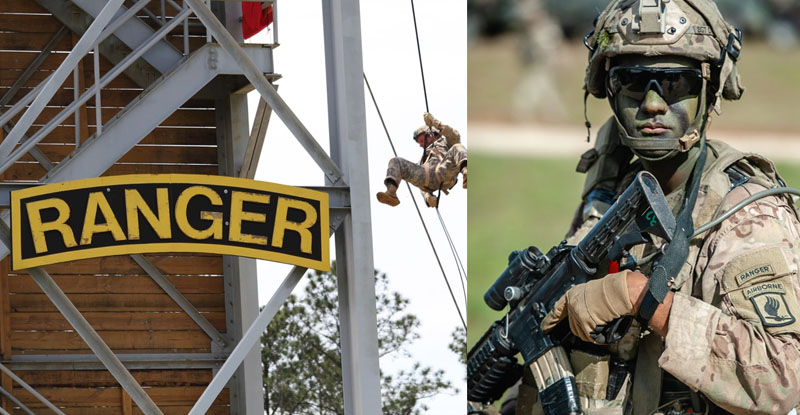

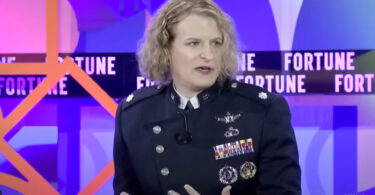

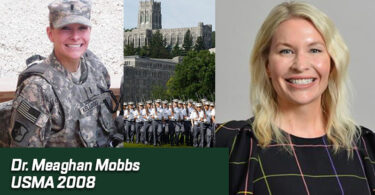

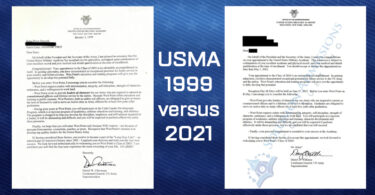
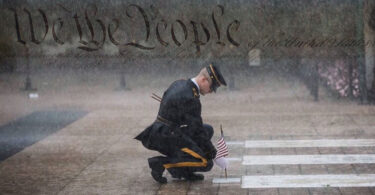
Leave a Comment